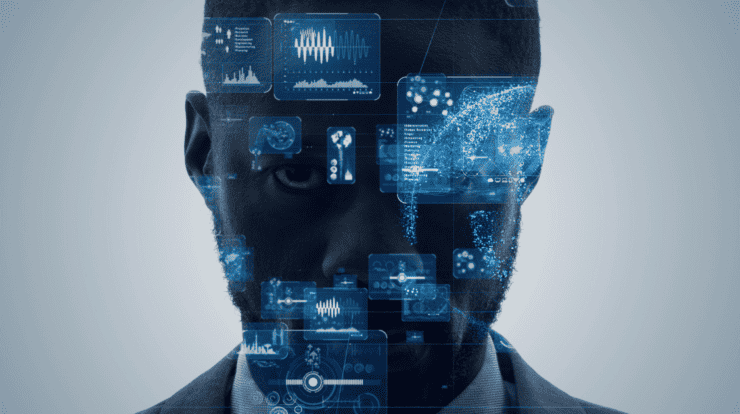
Artificial intelligence (AI) is at the forefront of, well, everything. From enhancing robotic surgery to ruining the film industry and creating months of strikes, AI is doing, well, everything. But it’s sort of out of control. And there are uncontrolled AI systems putting doubts into the world about bias.
The issue is – it’s a well-known fact that AI throws out a lot of bias with the data its training models consume. The technology is still in its infancy, so it is understandable, but it is raising eyebrows.
Still, the latest is that blockchain could prevent bias in the data the models consume and the information it churns out. Blockchain and the associated cryptocurrencies fuelling advancements in a new era of technology are dramatic. And they’ll only keep growing. The Bitcoin price predictions, for example, are huge, and so are the predictions of how we’ll be able to utilize the blockchain technology coins like bitcoin are funding.
Below, we’ll explore blockchain technology, its current uses, and how the media believes blockchain will help prevent AI bias.
What’s Blockchain Technology
Blockchain technology is a revolutionary technology that people associate with finance – but it’s so much more than that. The applications for decentralized finance are vast, but so is every other avenue it’s seeping into.
Its architecture ensures that every transaction is recorded and replicated across multiple nodes. It makes it immune to centralized failure or manipulation.
This decentralized nature of blockchain creates an environment where trust is built into the system. It isn’t dependent on external authorities like traditional systems. And its cryptographic underpins the security and privacy of transactions. The consensus mechanisms also ensure that every participant in the network agrees on the validity of transactions.
So the idea with AI is that everyone will have to agree on the information. Thus, it could prevent the bias.
The adaptability of blockchain technology is remarkable. It can find utility in domains as diverse as digital identity verification, smart contracts, and even in streamlining governmental operations.
And its role in enhancing data integrity is massive – making it an essential tool to combat the issue of AI bias,
The Current Blockchain Applications
Blockchain applications are everywhere. Even traditional systems are using them.
Blockchain introduces insane efficiency in property transactions, something traditional financial systems can’t replicate. They’re reducing fraud and simplifying the transfer process. Again, something traditional systems can’t replicate.
And in creative industries, it ensures the authenticity and rights of digital assets. It’s allowing for a transformation in how artists protect and monetize their work. Something that isn’t possible in traditional systems.
And even in voting systems, blockchain’s inherent transparency and security hold the potential to revolutionize democratic processes. Again, something traditional financial systems can’t replicate.
In education, blockchain can safeguard academic credentials, streamlining the verification process and reducing fraudulent claims.
Do we need to say it again? Traditional financial systems can’t do it.
It’s simply the efficiency, transparency, and security that traditional systems struggle to replicate.
The collaboration of industry leaders like IBM further exemplifies blockchain’s transformative power. Combine it with AI, and it could change everything.
And with the way AI is expanding rapidly, they have to do it right.
The Issues With AI Bias
Yes, AI is groundbreaking while groundbreaking, but the shadow of bias and misinformation is ruining it. The biases are a reflection of historical data and societal prejudices. And the issue is, they’re already embedded into AI training models and the information they’re giving out.
It’s raising ethical questions and questions about the objectivity and fairness of AI-driven decisions. It’s especially critical in domains like law enforcement, hiring practices, and loan approvals.
The challenge extends beyond technical fixes. It calls for an approach involving ethicists, sociologists, and technologists to understand and rectify the embedded biases.
But AI continues to intertwine with the fabric of our society. Addressing these biases is somewhat of a technical imperative. And AI should have a focus on this – the result is a lack of credibility in the technology that could be further ahead than it is.
How Can Blockchain Potentially Eradicate AI Bias
Blockchain’s promise of transparency and immutability is what people are hoping will solve the AI bias problem. By logging AI training data on a blockchain, there’s a tamper-proof historical record of data. It’ll ensure the integrity of the data-feeding AI models, supposedly.
And companies are beginning to pioneer systems where AI’s learning journey is checkpointed on the blockchain. The audit trail and the ability to ‘roll back’ an AI to a previous, unbiased state could solve everything.
And it’ll prevent AI hallucinations. AI hallucinations are a response generated by AI containing false and misleading information. The current prevalence of them at the minute is apparently 3%, but we’re not sure if that data is true. There’s a likelihood that it’s higher.
Yes, AI is reshaping everything we know. But people are worried about the bias and the misinformation it’s throwing out.
But blockchain has the ledger that could work to solve it all. AI needs a more robust framework to ensure it’s actually working as it’s intended to.


